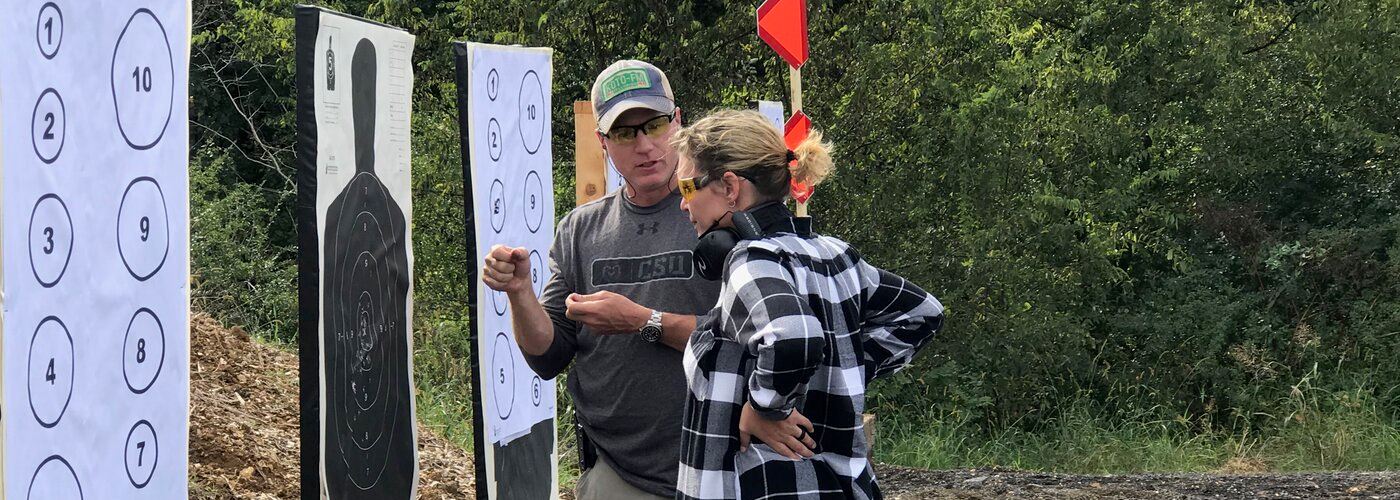
The importance of firearms training cannot be overstated. Our Constitution gives every law-abiding citizen of legal age the right to own and bear weapons. Having that right necessitates the need to obtain qualified training. Whether you intend to use your firearm for sport, home defense or concealed carry, assuming you can perform correctly without training is false – and dangerous - thinking.
But what are the steps you can take to prepare for firearm training? Here are some common questions asked by new gun owners seeking firearms training.
Why is firearms training important?
Proper firearms training ensures that you understand your specific firearm and how to use it safely. Using a firearm properly actually requires phases of training. A great training reference for anyone who plans to carry a firearm is Dave “Boon” Benton’s video on the three levels / phases of firearms training.
Firearms training also prepares you to purchase the right firearm and proper equipment for your needs.
What should I do to prepare to take firearms training?
A beginner or firearms trainee should seek training from instructors who teach Introductory, Basic and Safety courses, such as the National Rifle Association (NRA) Basics of Pistol and United States Concealed Carry Association (USCCA) Introduction to Pistol. You can find many other basic and introductory courses taught by qualified instructors.
We recommend supplementing firearms training with first aid classes. This allows you to be even more effective in emergency situations. The Red Cross offers Stop the Bleed classes. The Red Cross and the American Heart Association offer First Aid, CPR and AED (automated external defibrillator) classes.
How long does firearms training take?
This is subjective, depending on an individual’s desired outcome and the level of proficiency needed. However, we believe firearms training, like any type of learning, never ends. You’re always a student; even as an instructor. A good read for anyone planning to carry a firearm is this blog: “Does Having a Concealed Carry License Permit Prepare You to Carry a Firearm?”.
How often should you train with your firearm?
This depends on your goals. An instructor can help you evaluate your current skill level and help put together an overall plan to accomplish your goals. We recommend that all students take at least one instructor-led training course every year – at a minimum. Ideally, you should take more.
How do I balance firearms training and practice?
Training is where you learn fundamentals and how to apply them in multiple situations. Practice is where you master the fundamentals you’ve learned.
Why should I continually train and practice with my firearm?
Shooting is a perishable skill. When faced with a life-threatening situation, you will sink to your lowest level of mastered training. Stress will do that. If you only train once a year and never practice, you won’t master your training. Be objective about what you need to improve and practice.
What is the right balance of live-fire and dry-fire practice?
We recommend practice that includes a balance of live fire and dry fire. Some say the right balance can be as much as 90 percent dry fire. The good news is that dry fire is the most inexpensive part of training and practice. Never dry-fire practice with a potentially loaded firearm. Double and triple-check your firearm and make sure there is no ammunition in the same room.
As an alternative, we highly recommend the use of inert trainings firearms. Next Level Training makes a variety of SIRT (shot indicating resetting trigger) laser activated pistols that are great for training and use with software programs.
How can you know you have found qualified firearms training?
There are multiple ways to find qualified firearms training. Of course, we recommend ShootingClasses.com where you can easily search for specific types of courses, see instructor’s: experience, background, bio, certification, class videos and photos, and read students’ reviews to help determine which instructor is best for you.
Ask questions of an instructor. Make sure they know your needs and objectives. Take referrals from friends who have trained with an instructor.
Does a concealed carry weapon (CCW) training certificate expire?
States vary in their requirements. Ask your concealed carry certificate class instructor or do a Google search for “How long is the concealed carry certificate in (my state) valid?”
If you’re interested in firearms training, a good place to start is ShootingClasses.com. You can find qualified firearms instructors near you as well as a wealth of additional information for both new and experienced gun owners.
